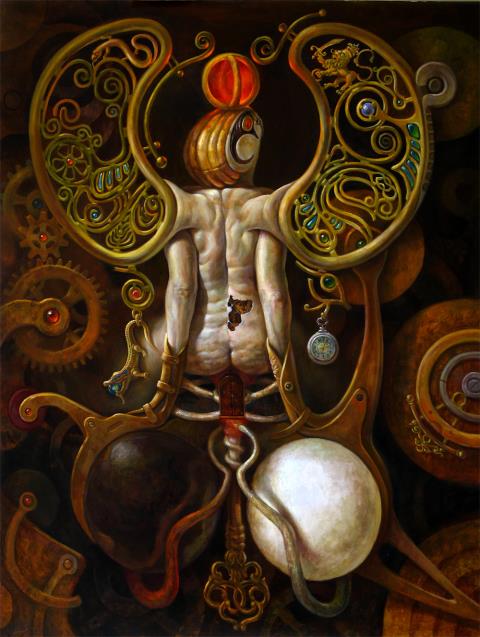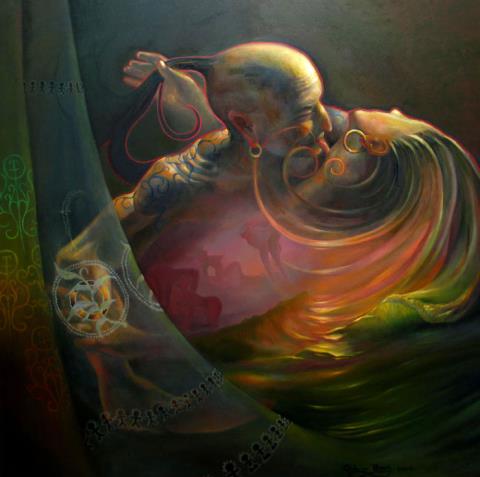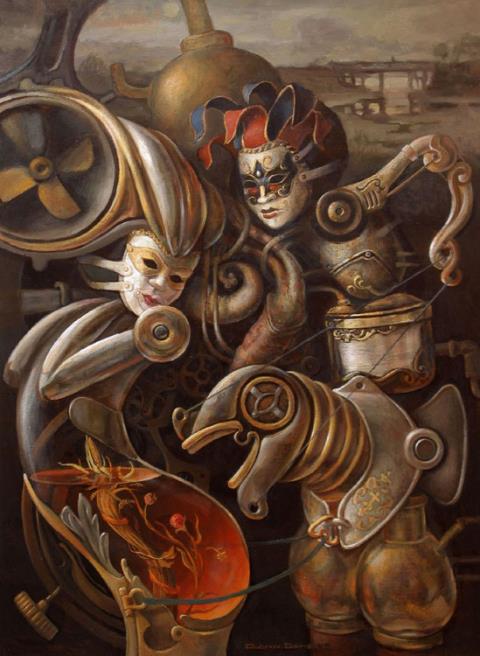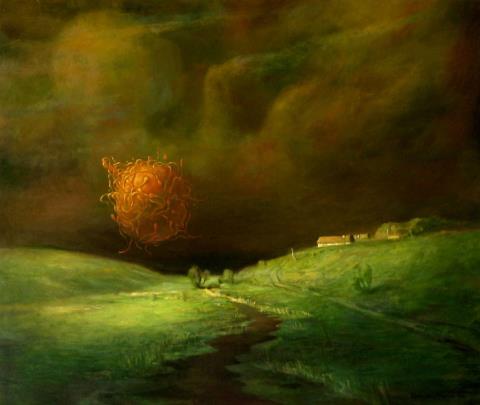7.02.2010
Sleep deprivation for three days has an immediate effect on your karma. Comes around faster than anything. I won’t even begin to try to calculate the hours I have and haven’t slept; in any case, aside from the 12-hour morphean marathon last night, I don’t think it was more than, say, eight. Within the space of three days. I’m so overwhelmed with yesterday in particular that this entry is not gonna be much more than a string of sentences lest I forget. I draw inspiration from Kerouac and his “automated writing”, “spontaneous prose”, “free-association technique”, whatever floats your boat. The difference being that Kerouac was a writer and I’m far from it. And, as far as I can see, he didn’t spontaneously go off on a tangent like I’m about to do right now.

I’ve always envied fast readers. Trudging through a book’s introduction during a three-and-a-half-hour train ride and not getting any farther is a pain in the ass, especially when you get the feeling that it harmonically complements a general slowness of the mind. This last one I still feel sometimes (the worst days are thankfully over), especially when I’m in an unfamiliar or embarrassing situation, or in a new place. I’d sell my soul an my abundant collection of useless trinkets to Lucifer if it meant an increased ability to adapt. Mine’s not the worst, but at times I still feel it is. Regardless, an additional 14 or so hours nodding off and nodding on at the airport – and in flight – produced a whopping 94 pages of On the Road. Hard to get immersed in a book if you keep going back to how slow you’re doing it. Rereading whole sentences and passages drives me up the wall precisely because I do it constantly, and I do it constantly for two reasons. On one pale horse rideth Concentration (or rather, He doth not ride since he’s left the building) and on the other rideth Imagination (who once again also dismounts and gets the hell out of Dodge a lot). I make conscious efforts to imagine what I’m reading, with results varying wildly. The most difficult part being geographical locations, spatial projections, descriptions of places. Seems my spatial intelligence is sub-zero. Another thing about On the Road is that the journey encompasses cities I know nothing about, and in some cases never heard of. And the narration isn’t the sort of disorganized mess I expected. No free-form stream of consciousness here, like chaotic thoughts in Stephen King. In any case, I’ll finish it before I leave.
Here’s my attempt at chronology. In the wee hours of the 5th, I left for Poznań to meet up with Maurycy, who greeted me after I arrived at the station and took me around town to see some of the important things. Quite an inspiring city, I must say, now that I tend to compare anything and everything with Lublin. At his place (in a suburban neighborhood) I met and ate dinner with his mom, his dad and his sister, and had the pleasure of meeting his dog, Heban. As great a guy as ever (Maurycy, not his dog, though he takes after his master, no doubt). Maurycy drove me over to the airport and off I went, I in the sky. Additional mission to carry out: buy tremoço for Maurycy and stuff it into my coat pocket. Stansted was its old admirable self, though strangely enough, the hordes sleeping on the floor were much smaller than usually. Between perusing On the Road and intermittently dozing off, I chugged down half a liter of energy drink and promptly fell asleep once again.
Faro. Lo and behold, I had to wait over an hour for the bus, which also seemed to perplex an Asian girl that was there with me. The long and heavenly wait interrupted by the coming of the bus, I got out near the bus station and gave Nina and Behrooz a call each from the Jardim da Alagoa. An hour or so later, my feet felt like oversized chicks in eggs of rubber as I dragged on in search of Nina’s place, which turned out to be some 30 steps away from where I first called her. Once there, I met an Iranian couple working at a store in town for the last 20-odd years and pumped myself full of pastéis de nata. The couple seemed extremely knowledgeable in diverse areas, and showed me such wonders of nature as sugar cubes made from beetroot (brought from Iran) and a spice they said was called cardomman, whose spelling I have to check and which was used in the tea Nina made. Overstaying my welcome, I watched Nina cut Atefeh’s hair, Ati being a girl living here with Javid, and met Rita and Gui, respectively an Italian Economics intern and a Portuguese guy living with Nina and Rita. My welcome was additionally overstayed by dinner (including vinegar-drenched lemon) and I made a prompt exit to get to Behrooz’s mom’s place. A wonderful lady. Javid had written several basic phrases for me beforehand and I’ve never lived with someone I can’t possibly communicate with, but I foresee situations of exceeding hilarity to come of this. It’s a unique feeling, really: I feel like a newborn, complete with all the innocent and helpless naïveté that is an integral part of learning a new language. So, secondary objective: learn some Farsi, even some basic conversational stuff. It ain’t gonna be easy. But in the night, on my way back from Behrooz’s place and with a sleeping bag and sheet under my arm, it occurred to me that was exactly what I loved when I took up Spanish and Portuguese: the newness, the freshness and the amazing realization that I no longer have the linguistic and communicational aptitude of a macaque.
Last-minute reflection: Javid told me how he’s working with a couple of people on a project connecting engineering with medicine, and the purpose is developing a ultrasonographic system similar to the scanning methods used during pregnancy, but this time for purposes like identifying and treating cancer, obliterating the x-ray and other techniques of ambiguous usefulness and win-some-lose-some properties. I see that as revolutionary. I see that as something that makes a change and makes a difference. However you spin it, it’s a difference I’m not making as of today and which I’d like to make as of tomorrow.










